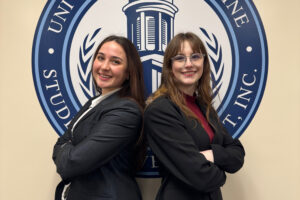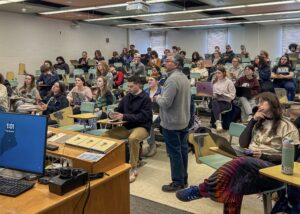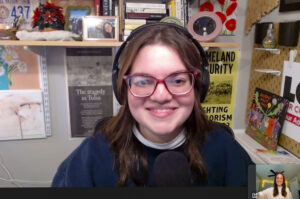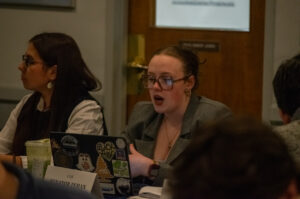Professor Michael Howard, Ph.D, gave the final lecture in the “Controversy Series” hosted by the University of Maine Socialist and Marxist Studies Department. The lecture, titled “Liberal Egalitarian Versus Marxist Concepts of Exploitation,” took place on Nov. 19 in the Bangor Room of the Memorial Union.
The series was co-sponsored by Maine Peace Action Committee (MPAC) and the Division of Student Affairs with the support of the College of Liberal Arts and Sciences. The series was coordinated by Professor Douglas Allen, Ph.D.
Lecturers, including Howard, didn’t present specifically socialist or Marxist viewpoints, but rather gave information pertaining to philosophies and their potential efficacy.
Howard’s lecture concentrated on Unconditional Basic Income and if it could work on a national scale; in the United States for example.
An Unconditional Basic Income is an income that is given to all people on an individual basis, unconditionally. The amount given depends on regulation.
According to Howard, basic income is no longer just an idea, but a reality. He cited recent cases where the Finish and Swiss governments have started to consider implementing an Unconditional Basic Income.
Howard also cited Alaska’s success. Prior to the first dividend, Alaska had one of the highest inflation rates in the U.S. Since a partial Basic Income was implemented in 1982, the state has had a lower inflation rate than the rest of the U.S.
In his lecture, Howard focused on what Marxists have to say about an Unconditional Basic Income.
“Marx, on the one hand, points toward a society in the distant future where people receive income and other things based on their needs, whether they work for it or not,” Howard said.
“On the other hand, there is a deeply entrenched view that laborers are exploited by capitalism because they don’t get paid the full value of their labor and that in a just society, people would get paid based on their work and the work would be done by everyone,” Howard continued.
Based on this contradiction, Howard argued that a deeper understanding of the inequalities of capitalism is needed. With an Unconditional Basic Income, those who are unable to work, or work but don’t make enough to take care of themselves or their families would receive the assistance they need.
Howard added that an Unconditional Basic Income “is a tool against exploitation, not a means of exploitation.”
Once the lecture ended, there was a 30-minute question and answer session, where Prof. Howard enthusiastically discussed these concepts further.





